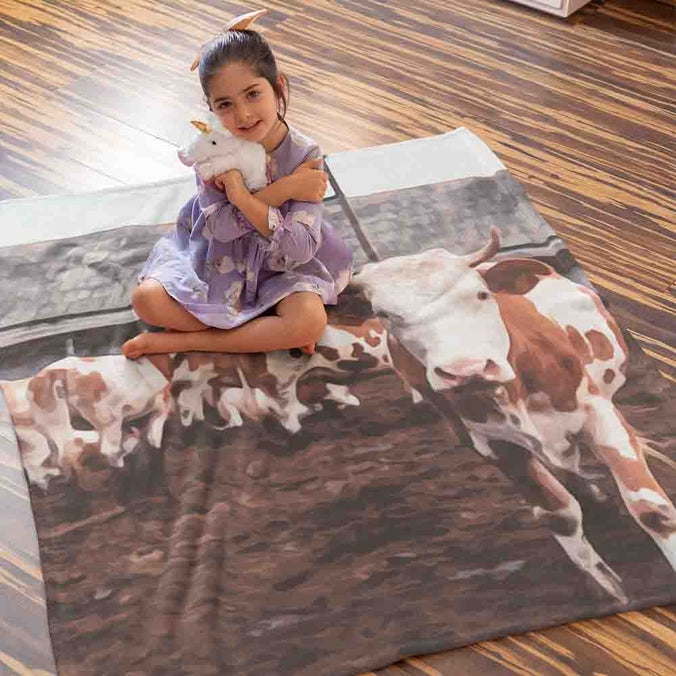Basic Feng Shui Principles

Basic Feng Shui Principles
Feng Shui is an ancient Chinese practice that aims to harmonize the energy within a living space to promote balance, health, and prosperity. By following these basic principles, you can create a comfortable and positive environment in your home.
Positioning the Bed
In Feng Shui, the bed represents the person. It is essential that it has a commanding position and is not cluttered with storage items. Fill the bed with soft objects, and introduce the earth element for support and nourishment by placing a square earth-colored rug beneath the bed.
Five-Element Theory
The Five-element theory focuses on how different elements affect each other in a space. The elements are fire, earth, metal, water, and wood. Applying the Five-element theory to your home helps maintain balance and well-being. Utilize physical objects, colors, and shapes associated with each element to enhance the energy of your living space.
Direction of the House
The direction of the house is crucial for attracting positive energy. Ensure your house is well-ventilated, receives ample natural light, and has an open path leading to the front door. Public spaces should be at the front, with private rooms in the back, and the front door facing east or north.
Size and Location of the House
The size and shape of the house should be proportionate and feature a combination of curved and geometrical features. The main door is essential for energy flow and should be proportionate to the rest of the house. Ideally, the house should be located next to a body of water or a mountain range, or face a south-facing direction.
Position of Furniture
The position of furniture is essential in Feng Shui. Place furniture against a solid wall to increase energy flow and maintain a commanding position for important pieces like the bed. Decorative objects and artwork should be placed in areas where natural light can penetrate, creating a relaxing atmosphere.
Avoiding Clutter in the Bedroom
Avoid clutter in the bedroom to maximize space and create a relaxing environment. Remove excess furniture, use vertical storage systems, and regularly sort through your wardrobe to maintain order. Keep your bedroom clean and organized to improve sleep quality.
Keeping Energy Flowing
Keeping energy flowing in the right direction is vital in Feng Shui. Avoid placing objects that hinder energy flow and position key items in commanding positions, such as entrances. Separate work and rest areas, and use colors like red to attract fire energy and enhance wealth. Incorporate potted plants and other natural accents to create a harmonious environment.
Creating Balance with Yin and Yang
Yin and Yang are essential concepts in Feng Shui, representing the dual aspects of energy. Yin is associated with passivity, coolness, and darkness, while Yang represents activity, warmth, and light. To create a balanced and harmonious environment, incorporate a mix of Yin and Yang energies throughout your home.
For example, balance a brightly lit room (Yang) with soft, neutral colors and cozy textures (Yin). Conversely, a room with darker colors and heavy furniture (Yin) can benefit from more natural light and the addition of lively, warm colors (Yang). Striking a balance between these two energies will create a sense of harmony and peace in your living space.
Incorporating Feng Shui-friendly Plants
Integrating plants into your home décor is an effective way to bring natural, positive energy into your living space. Plants can help purify the air, improve your mood, and promote relaxation. However, it's essential to choose Feng Shui-friendly plants that will benefit your environment.
Some popular Feng Shui-friendly plant options include:
- Bamboo: Symbolizing good luck and resilience, bamboo is a low-maintenance plant that can thrive in various lighting conditions.
- Peace Lily: Known for its air-purifying abilities, the Peace Lily is also a symbol of harmony and balance.
- Jade Plant: Believed to attract wealth and prosperity, the Jade Plant is often placed near entrances or in the southeast area of a room.

Place plants in strategic locations around your home to improve the flow of energy and create a more welcoming environment.
Properly Positioning Mirrors
Mirrors play a significant role in Feng Shui, as they can enhance light, create a sense of space, and redirect energy. However, their placement requires careful consideration. Avoid positioning mirrors directly opposite the front door, as this can push away positive energy entering the house. Additionally, mirrors should not reflect the bed, as this can disrupt sleep and create negative energy.
Instead, place mirrors on walls perpendicular to the entrance, allowing energy to flow throughout your home. In bedrooms, you can use a mirror to reflect a beautiful view or a piece of art that brings joy and serenity.
Enhancing Your Workspace
With an increasing number of people working from home, creating a harmonious workspace is crucial. Separate your work area from your sleeping space to maintain balance and prevent energy disruption. Choose a dedicated room or area in your home, preferably with a window for natural light.
Incorporate the Five-element theory into your workspace, using the appropriate colors, shapes, and materials to support your productivity and well-being. Also, position your desk in a commanding position, with a solid wall behind you for added stability and focus.
By following these Feng Shui principles, you can create a positive and supportive environment for both work and relaxation, ultimately enhancing your overall quality of life.
Leave A Reply
Your email address will not be published. Required fields are marked *






